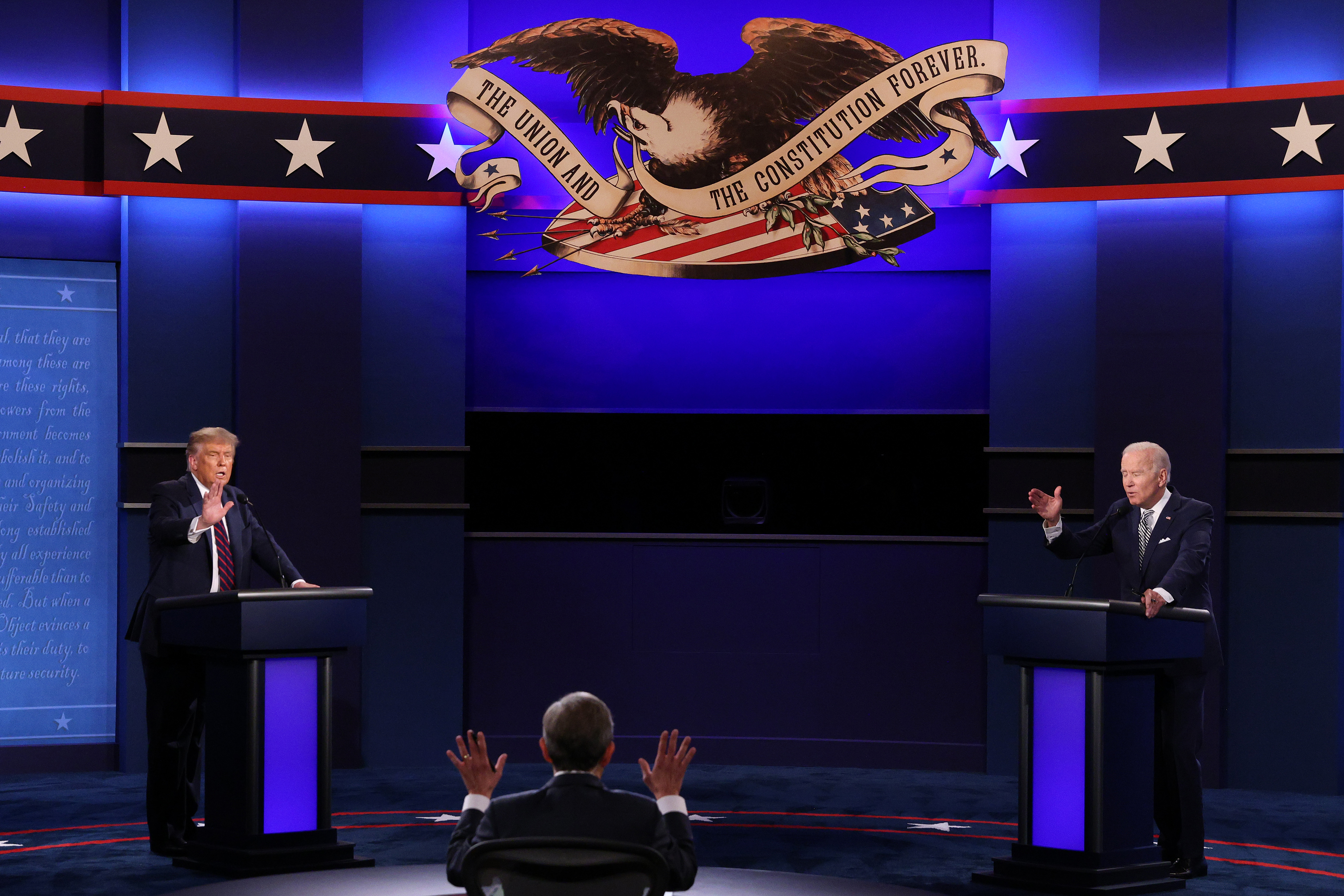The virtual secession
The election has left no doubt that Americans live in two separate realities


This is the editor's letter in the current issue of The Week magazine.
In his first inaugural address in 1861, with a fractured nation rushing toward civil war, Abraham Lincoln expressed hope that "the better angels of our nature" would save us from a terrible conflagration. It is a plea just as relevant today. A cold civil war has, over the past four years, led to a virtual secession. Americans now live in two separate realities. In one, Donald Trump is a blatantly corrupt and cruel liar who has smashed norms and decency, purged the federal government of ethical public servants, pandered to racists, and cost tens of thousands of Americans their lives by horribly mismanaging the U.S. response to the coronavirus pandemic. In the other, the president is an authentic if bombastic patriot who championed the working class and goosed the economy, and can't be blamed for an overhyped pandemic. Whatever the "fake news" media says can be ignored. The truth can be found on Fox News and Facebook.
Divided we stand . ..for now. But the schism is deep and serious. The two Americas no longer can even agree on the basic facts, and not even obvious truths go undisputed. This divisive election, Ron Brownstein said at The Atlantic, "may be just the opening bell for a decade that tests the nation's cohesion like few others ever have." An optimist might hope that a divided government will force Democrats and Republicans to compromise to address our many pressing problems. But that would require both parties to be motivated by the common good — to listen to their "better angels." In Washington, the party out of power has learned to use obstruction and dysfunction to damage the incumbent, and pave the road to regaining the White House. For Fox, meanwhile, fear, anger, and conspiracy theories will continue to be ratings gold. "We must not be enemies," Lincoln implored in 1861, as dark clouds gathered. Americans were too bitterly divided to hear him then. We may still be.
The Week
Escape your echo chamber. Get the facts behind the news, plus analysis from multiple perspectives.

Sign up for The Week's Free Newsletters
From our morning news briefing to a weekly Good News Newsletter, get the best of The Week delivered directly to your inbox.
From our morning news briefing to a weekly Good News Newsletter, get the best of The Week delivered directly to your inbox.
A free daily email with the biggest news stories of the day – and the best features from TheWeek.com
William Falk is editor-in-chief of The Week, and has held that role since the magazine's first issue in 2001. He has previously been a reporter, columnist, and editor at the Gannett Westchester Newspapers and at Newsday, where he was part of two reporting teams that won Pulitzer Prizes.
-
 A peek inside Europe’s luxury new sleeper bus
A peek inside Europe’s luxury new sleeper busThe Week Recommends Overnight service with stops across Switzerland and the Netherlands promises a comfortable no-fly adventure
-
 Space data centers could be joining the orbit
Space data centers could be joining the orbitUnder the radar The AI revolution is going cosmic
-
 Codeword: December 23, 2025
Codeword: December 23, 2025The daily codeword puzzle from The Week
-
 How Bulgaria’s government fell amid mass protests
How Bulgaria’s government fell amid mass protestsThe Explainer The country’s prime minister resigned as part of the fallout
-
 Femicide: Italy’s newest crime
Femicide: Italy’s newest crimeThe Explainer Landmark law to criminalise murder of a woman as an ‘act of hatred’ or ‘subjugation’ but critics say Italy is still deeply patriarchal
-
 Brazil’s Bolsonaro behind bars after appeals run out
Brazil’s Bolsonaro behind bars after appeals run outSpeed Read He will serve 27 years in prison
-
 Americans traveling abroad face renewed criticism in the Trump era
Americans traveling abroad face renewed criticism in the Trump eraThe Explainer Some of Trump’s behavior has Americans being questioned
-
 Nigeria confused by Trump invasion threat
Nigeria confused by Trump invasion threatSpeed Read Trump has claimed the country is persecuting Christians
-
 Sanae Takaichi: Japan’s Iron Lady set to be the country’s first woman prime minister
Sanae Takaichi: Japan’s Iron Lady set to be the country’s first woman prime ministerIn the Spotlight Takaichi is a member of Japan’s conservative, nationalist Liberal Democratic Party
-
 Russia is ‘helping China’ prepare for an invasion of Taiwan
Russia is ‘helping China’ prepare for an invasion of TaiwanIn the Spotlight Russia is reportedly allowing China access to military training
-
 Interpol arrests hundreds in Africa-wide sextortion crackdown
Interpol arrests hundreds in Africa-wide sextortion crackdownIN THE SPOTLIGHT A series of stings disrupts major cybercrime operations as law enforcement estimates millions in losses from schemes designed to prey on lonely users
